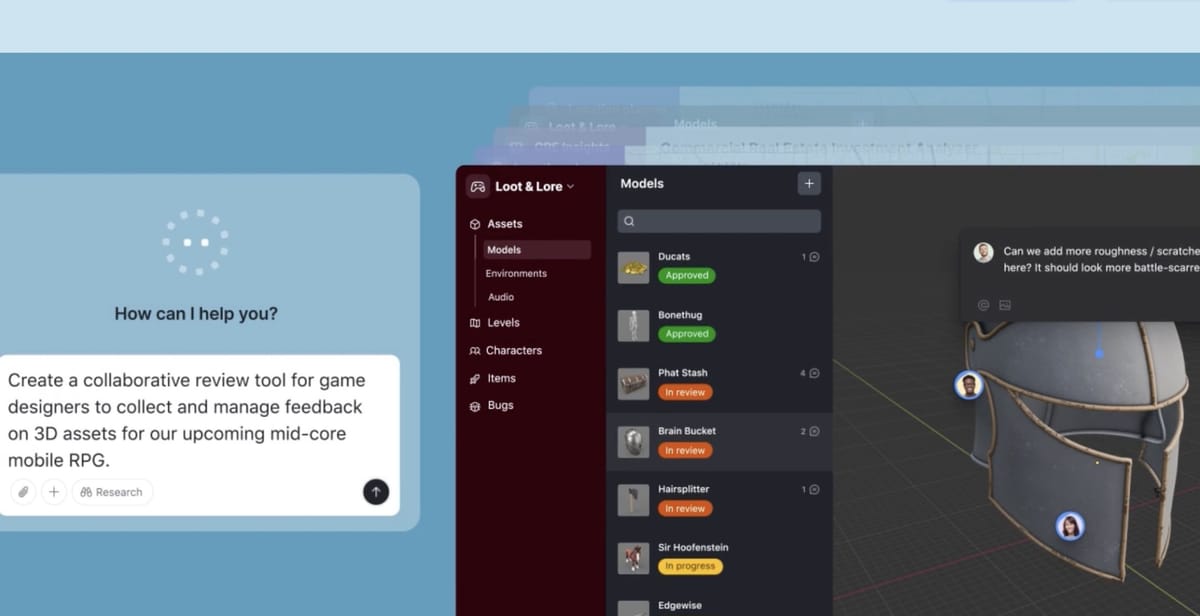Airtable is throwing out the playbook. The company that made spreadsheets cool for business teams just announced it's "refounding" itself as an AI-native app platform, complete with an AI agent called Omni that can build, edit, and automate apps through simple conversation. It's a bold bet that the era of drag-and-drop app building is over, replaced by something that feels more like chatting with a very smart intern who happens to know how to code.
Key Points:
- Omni goes beyond basic "vibe coding" - Unlike tools like Cursor or Bolt.new that create buggy prototypes, Airtable's AI uses production-ready components to build reliable business apps
- AI agents can work at massive scale - The platform can deploy thousands of AI workers simultaneously across datasets to automate workflows that would take human teams months
- Free AI across all plans - Airtable is making AI capabilities standard on every plan, including free accounts, with generous credit allowances
CEO Howie Liu calls this a "refounding moment" rather than just another AI feature release, and he's not wrong. What Airtable announced isn't just AI-powered spreadsheets - it's a complete reimagining of how business software gets built.
The past year has seen an explosion in "vibe coding" tools like Cursor, v0, Replit Agent, and Bolt.new that let you describe an app and watch AI build it. The problem? These tools produce apps that "look good" but "underneath could contain bugs, edge cases, and data/security leaks" - fine for prototypes, terrible for running your business.
Airtable's solution is clever. Instead of generating code from scratch, Omni uses Airtable's existing production-tested components as building blocks. Liu describes it as turning "Airtable into a powerful parts bin, that our new app building agent, Omni, gets full access to." You get the magic of conversational app building, but with the reliability of enterprise software.
Omni can switch seamlessly between building apps and working with data. A VC can "paste in notes from a startup pitch meeting and have Omni create an entry for the company into their investment opportunity tracking app." It's like having a personal assistant who also happens to be a developer.
But the real power comes from deploying AI at scale. Airtable says you can "build apps that chain together multiple AI steps, along with human workflows" to create "a complete, operational AI system rather than a thin wrapper around AI calls."
The examples are impressive. Creative campaigns that "used to take months now happen in minutes" with agents generating "multiple campaign concepts with production-quality visuals for each direction." Sales teams can have AI agents analyze "patterns across thousands of calls" to surface "the biggest customer needs" and then "automatically research how competitors are solving these same problems."
This isn't just about making app building easier - it's about fundamentally changing how work gets done. Liu argues that "when the cost of making apps goes to zero, how many more apps will we see made?" Instead of buying off-the-shelf software that almost fits your needs, you'll just build exactly what you want.
Airtable is also making a statement about pricing. Starting June 24th, customers on Team or Business plans will no longer be charged for AI on a per-seat basis, and every plan, including the free plan, now comes with "all of these AI capabilities and a generous bundling of AI credits." That's a big deal when competitors are still charging premium prices for AI features.
No-code platforms like Softr, WeWeb, and others are racing to add AI capabilities, while direct Airtable alternatives like Stackby and Baserow are carving out their own niches. But Airtable's approach feels different - instead of adding AI features to existing tools, they're rebuilding the entire platform around AI-first principles.
The new AI-native Airtable will be the default experience for new users and is rolling out to existing customers over the next few weeks.

